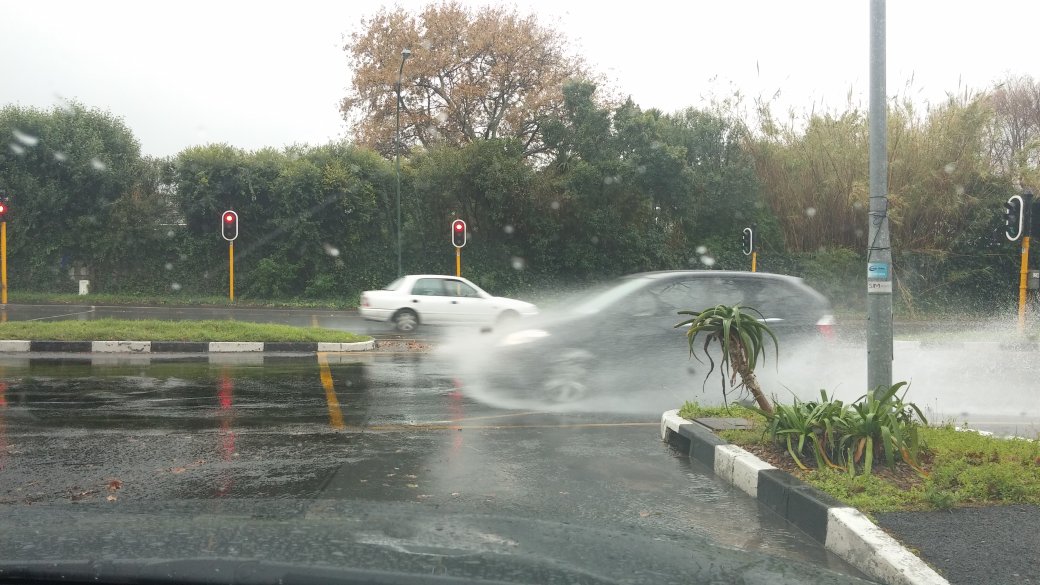The first two days of June have brought with it a major cold front, which will only likely ease off at the end of the week. After a relatively dry autumn, Capetonians have been met with blustering winds and heavy rains, and in some parts of the peninsula, flooding has been reported.
The City of Cape Town’s disaster Risk Management centre is on high alert for any disasters that might occur during this rainy season.
Mandy Thomas of the City’s disaster management has stated that so far only one road has been closed due to the rain – Chapman’s Peak drive, a favourite route for tourists during the summer.
However, due to a recent fire the ground along the mountain has been damaged and rainfall to the area does not make the situation any better. There have been mudslides along the road and so far it will be closed for the rest of the week.
“We have plans for all areas of Cape Town but we are concentrating now on areas that are more prone to flooding,” Thomas explained.
“These will be the informal settlements across the cape flats”.
Low lying areas areas have always been severely affected by the harsh rain that can be experienced in the cape and thus disaster management is on standby should any flooding occur.
“Today we have had some calls about flooding in Sir Lowery pass village and Khayelitsha, our field staff are busy doing assessments at the moment,” Thomas said.
Due to the issue of load shedding, residents should take extra precautions when it comes to using gas stoves and heaters and make sure that it is switched off when turning in at the end of a long day. Fires should also be carefully watched and killed before leaving the site of the fire.
“The City will do a media briefing soon that will give the public an exact breakdown of what department has done what,” Thomas said.
Residents should check their property and their drainage pipes to ensure that is it not blocked.
“Dead and burnt trees should be removed from property and place sandbags around those areas prone to flooding. Also check your insurance policy to ensure that it is geared towards flooding and mud-damage,” Thomas went further.
In informal settlements, residents should raise the level of their house so that is it higher than the land outside to minimise damage to their structures.
“Listen to weather warnings that are issued by the South African weather services,” Thomas urged. VOC (Umarah Hartley)






 WhatsApp us
WhatsApp us 

